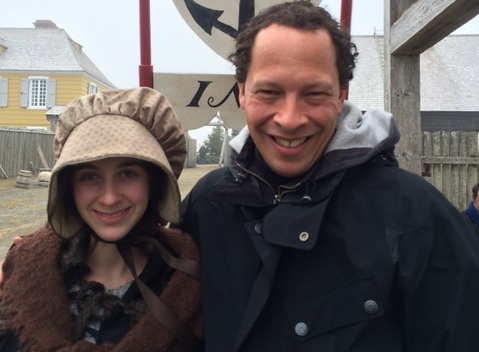Lawrence Hill is an award-winning and bestselling author — most notable for penning The Book of Negroes, Some Great Thing, and Any Known Blood. Recognized as one of Canada’s finest writers of fiction and non-fiction, Hill’s literary achievements already place him among the country’s most celebrated artists. He is a professor at the University of Guelph and a well sought-after lecturer. Beatrice and Croc Harry is Lawrence’s first children’s book (although adult readers will find depth, intrigue, and enjoyment too.) Elixuer was delighted to sit down with Hill to discuss the evolution and landscape of Beatrice and Croc Harry.
Beatrice and Croc Harry is your first children’s book. Tell us a little about your inspiration to take on a new genre, and how do you feel this new work will extend to your adult readers?
The initial inspiration came from telling my daughter, Beatrice, bedtime stories featuring “girl versus crocodile.” We had such a good time with those stories that Beatrice made me promise to turn them into a novel one day. And here we are, fifteen years later. I’ve never written a novel for children before, but as I worked on the many drafts, it dawned on me that I was writing as much for adults as I was for children. I’m writing for both groups. And why not? Many adults and children read the same books.
In my case, some of the books for children that I have read and loved — as an adult — are the Harry Potter series, The Reluctant Journal of Henry K. Larson, Anne of Green Gables, The Little Prince and Charlotte’s Web. My five children, when they were still young, began dipping into adult literature. I’m not sure if Beatrice and Croc Harry will appeal to my adult readers, but I do hope so.
The evolution of Beatrice and Croc Harry’s unlikely union is one of trust, friendship, and self-sacrifice. How and when did these two wonderful characters come to life in your imagination?
The characters first entered my mind and heart when I told Beatrice the bedtime stories. Near the end of each one, Beatrice would narrowly escape the jaws of death. However, when it came time to write the novel, I had to develop their relationship far beyond, “Will he or won’t he have her for breakfast?” I had to give them an opportunity to bond, grow, travel, and learn together. I was taken by the idea that they would each have to discover something of their past lives, and that doing so might either draw them closer together or split them apart.
Beatrice, the main character, is in search of her roots, belonging, and identity. Do you feel readers will find their quests for self-identity reflected in her journey?
I believe that most people can identify with the search for identity and belonging. It’s a universal hunger, and, in some respects, it’s a lifelong process. Beatrice’s case is rather extreme because she awakens all alone in a massive forest with complete amnesia. So, she has to define and discover herself, as if from scratch. I hope that readers will engage with Beatrice as she begins to assemble the pieces of her lost identity.
When Beatrice is in Argilia, she is free from worldly labels and categorizations. What is the significance of Beatrice being unaware that she is Black until someone else mentions it?
Many aspects of our identity only acquire meaning in relativity to others. When Beatrice awakens with no idea [that] she has parents or a country or a culture because she is all alone in a massive forest, the fact that she is Black does not dawn on her, and only begins to mean something as she prepares to encounter human civilization again. Racial identity is a social construct. It is an invented concept, designed primarily to favour some and to subjugate others. Because she is utterly focussed on finding out who she is, where she comes from, and why she has been abandoned, Beatrice will be forced to reckon soon with her own racial identity, and the reader gets to come along for the ride.
Do you have any advice for aspiring writers? How can writers develop their craft, and do you agree with the saying, “Write what you know”?
I feel that expression is overused. If I only wrote what I knew, I could never have written any of my novels — including The Book of Negroes, The Illegal, and Beatrice and Croc Harry — because the characters (people, mammals, and reptiles) all experience things that are far removed from my own life experiences. And what do we know? Is it only that we have lived in our own kitchens and on our own streets? Or can we come to know something through reading, research, interviewing new lived experiences that we choose to seek out, and perhaps most significantly of all, through our imaginations? Novelists are nowhere without imagination.
Writing well is far more than building a clean sentence. It is about exploring the human heart — our own hearts and those of our neighbours on this planet that we share. My first bit of advice to writers is to read and write, over and over and over. My second bit of advice would be to cultivate the imagination, the ear, and the ability to empathize with others. My third and final bit of advice would be to find a way to feed yourself and your loved ones while you spend the years it takes to develop your art.
Jason Waddle | Contributing Writer










